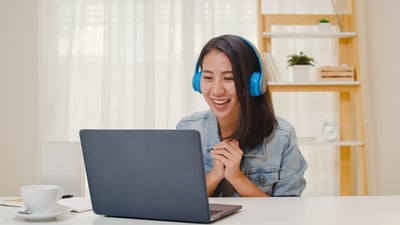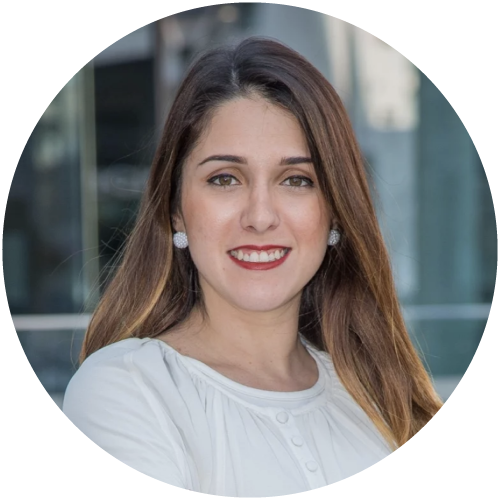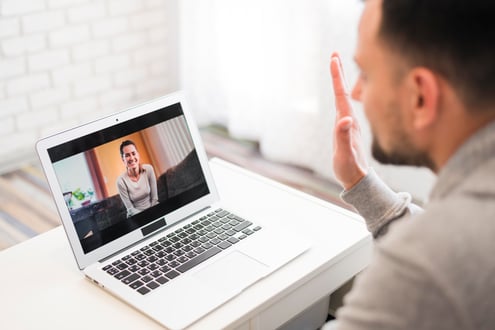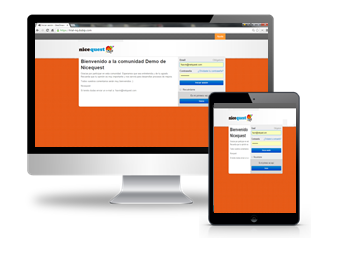Adaptation is necessary. Is this a motto? I am not sure but what I am positive about is that it seems we hear this often. It reaches our ears so frequently that we can easily confuse adaptation with evolution. Adapting is explained, from biology, as the process by which an organism adjusts to the environment and its changes"
The digital revolution has brought changes in our behavior, habits and even in the way we consume content, products and also services.
As an industry, Market Research has also been adapting and changing with the rise of new technologies. Innovative ways to meet consumer needs and understand people’s opinions have emerged.
And not only traditional questionnaires have changed. Similarly, some qualitative research techniques have done it as well. Focus groups, for instance, have also migrated to the digital ecosystem.
Online Focus Group: what is it about?
 A focus group is a meeting of several people and its purpose is to talk or discuss a specific topic. The goal of this type of tool is to know the opinions or perspectives of consumers. Whether they are existing current products or services or have not been launched on the market yet.
A focus group is a meeting of several people and its purpose is to talk or discuss a specific topic. The goal of this type of tool is to know the opinions or perspectives of consumers. Whether they are existing current products or services or have not been launched on the market yet.
According to the glossary of terms of the British Market Research Association (BMRA,) Focus Groups are “one of the basic methods of qualitative research, often used in exploratory work and when the subject matter involves social activities, habits and status.”
Although it is a technique that was born to be applied face to face, today it is possible to do it online with an appropriate platform.
This is how online focus groups were born, sessions in which participants connect to express their opinions. The difference with the traditional method is that a physical location to gather people is not required.
What do you need for an Online Focus Group?
If we were talking about a food recipe, several ingredients are required and the preparation instructions must be correctly followed.
In the case of online focus groups, the components you need are these:
- Participants
- A platform
- A moderator
How is it done?
 A group of panelists is selected from an online access panel. These panelists enter an interactive platform where, simultaneously, a topic is discussed under the guidance of a moderator.
A group of panelists is selected from an online access panel. These panelists enter an interactive platform where, simultaneously, a topic is discussed under the guidance of a moderator.
the goal is the first step of any focus group (traditional or offline). Once you set your objective, you'll need to work on the questions to be asked during the discussion, also, on the profiling of the participants you need to recruit based on your sample of interest.
Advantages of Online Focus Groups
1. Flexibility: They are more flexible in terms of location of participants and response time. In addition to being carried out on platforms that are usually intuitive and, therefore, easy to use.
2. Representativeness: Since the participation is global, Online Focus Groups allow you to recruit a more representative sample of the population you want to reach.
3. Speed: Everything is online, and therefore, immediate. Without the need to coordinate the transportation of the participants, it also saves time.
4. No physical restrictions: All that is required is for the participants to have an internet connection. There is no need to consider transfers or mobilizations, which are sometimes impediments for people to effectively attend traditional focus group sessions. Thanks to the advantages of online, you can be wherever and whenever you want.
5. Better insights: People tend to be more natural in the online environment. So the answers you get can be more honest and spontaneous than when they are face-to-face with a moderator.
Wrapping it up: focus groups are an ideal (and faster) alternative to in-depth individual interviews. In addition to all the advantages that we have already mentioned, online focus groups are usually cheaper than face-to-face ones.
So, get going! And if you've made it this far, start by finding the participants you need in this brochure with updated profile information from our panelists.






